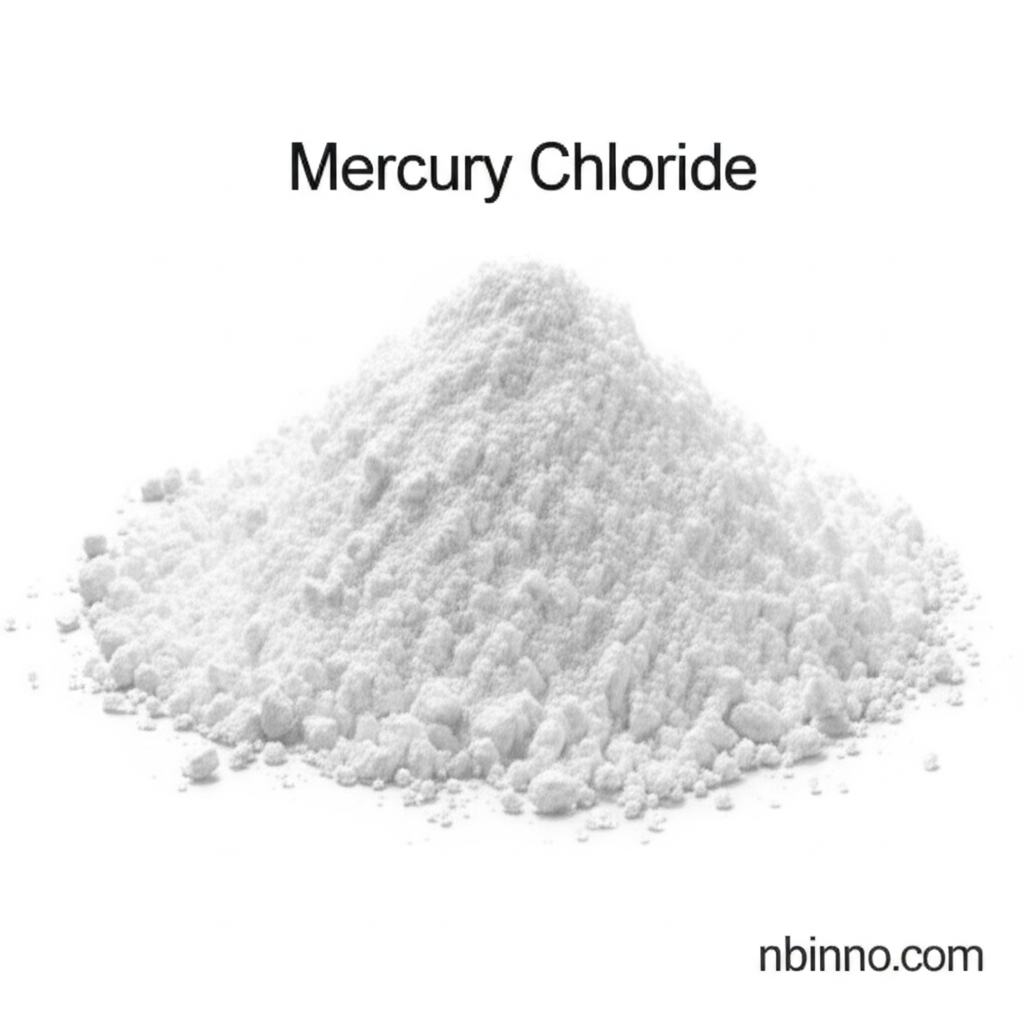Mercury Chloride CAS 7487-94-7: Industrial Catalyst, Reagent, and Preservative Applications
Discover the multifaceted uses of Mercury Chloride, from catalyzing organic reactions to its historical roles and essential safety considerations.
Get a Quote & SampleProduct Core Value

Mercury Chloride
Mercury Chloride (CAS 7487-94-7) is a crucial chemical compound with a white crystalline appearance, widely recognized for its utility across various industrial sectors. It serves as a vital catalyst in organic synthesis, particularly in the hydrochlorination of acetylene to produce vinyl chloride. Beyond its catalytic functions, it is employed as a chemical reagent for creating metal amalgams, notably with aluminum, which enables unique chemical reactions not possible with pure aluminum. Historically, it has been instrumental in processes like photographic intensification and as a preservative for wood and biological specimens. Its potent disinfectant properties also led to its use in wound treatment, though its high toxicity necessitates careful handling and application.
- Explore the critical role of mercury chloride catalyst acetylene hydrochlorination in industrial chemical production.
- Understand how mercury chloride chemical reagent aluminum amalgamation facilitates novel chemical reactions.
- Learn about the historical significance of mercury chloride preservation wood kyanizing in material science.
- Investigate the applications of mercury chloride disinfectant wound antiseptic in historical contexts.
Advantages Offered by the Product
Catalytic Efficiency
As a mercury chloride catalyst, it significantly enhances the efficiency of acetylene hydrochlorination, a key process for vinyl chloride monomer production.
Reagent Versatility
Its application as a mercury chloride chemical reagent allows for the creation of metal amalgams, expanding possibilities in chemical synthesis and analysis.
Preservative Efficacy
The historical use of mercury chloride preservation wood kyanizing demonstrates its effectiveness in protecting materials from degradation.
Key Applications
Organic Synthesis Catalysis
Mercury chloride acts as a catalyst in organic synthesis, aiding in reactions like the conversion of acetylene to vinyl chloride, a crucial step in plastics manufacturing.
Metal Amalgamation
As a chemical reagent, it is used to form amalgams with metals such as aluminum, enabling unique chemical transformations and applications.
Material Preservation
Historically utilized for kyanizing wood and preserving specimens, demonstrating its capabilities in material protection against decay and infestation.
Historical Disinfection
The compound served as a potent disinfectant for wounds and in various applications, highlighting its antimicrobial properties.
